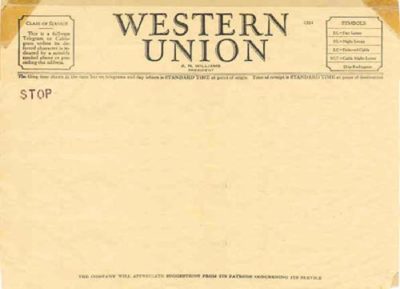In the past couple of weeks, we saw four relatively recent movies. All within the past couple of years, at least. Only one of them–Black Panther was in the theater. One, Spotlight, we downloaded on our tablet to watch on our anniversary cruise. The other two, Logan Lucky and Breathe we rented with my grandparents.
All very different stories. And I liked them all to varying degrees, but this post won’t go indepth into reviews of any of them. There’s simply something I noticed that they all had in common.
They were very effective at communicating their message in a non-preachy way.
There’s a famous quote from producer Samuel Goldwyn (or possibly Harry Warner or Humphrey Bogart–as with many quotes, no one knows for sure) saying “If you want to send a message, call Western Union.” Don’t make a movie. Or a TV show. Or any kind of fictional story. He posited that fiction is for entertainment.
If you’re friends with me on Facebook, you recently saw me go on a disappointed rant about The Good Doctor, a show I praised when I first began watching it. Over the last several episodes it became increasingly political and more and more full of a liberal agenda until I honestly have zero interest in continuing to watch. There is some truth to this idea–that we don’t watch or read stories to be hit over the head with an agenda. But on the other hand, the most popular stories are the ones that make us think about something. That have some kind of greater meaning. From Oliver Twist to The Help, from Anne of Green Gables to Casablanca, the stories that live on are often the very ones that do have an agenda.
So what separates the good from the bad?
I don’t think it’s anything that you can point at, anything concrete enough to explain. When we see it, we know it–but we don’t always know why. It’s the reason one story touches us and might even change our minds about something, while another merely irritates us.
The movies I saw recently were unexpected sources of such messages. I knew that Spotlight was about the journalists that uncovered the Catholic sex scandals about ten years ago, and I braced myself to see the Church and its people bashed–but I was pleasantly surprised to simply see an honest story that wasn’t about religion as much as secrecy and pride.
I knew that Breathe would be good, but I didn’t expect it to make me think quite as much as it did about the ramifications of life for the disabled and the artificial sustaining of that life. It spurred many conversations that night and into the next day.
Black Panther also had me bracing myself for some sort of agenda about racism, but while racism was mentioned in the story, it wasn’t the main focus, and it wasn’t a cut-and-dried sermon on any of its topics. Rather, it presented questions about power and responsibility and hinted at possible answers.
Even Logan Lucky, probably the least thematic of the four, contained simple themes of family and priorities.
At the end of the day, it’s not as simple as just telling a story, and leaving the messaging to texts and emails (to put the quote in a modern context). It’s more about how the message is told–whether it is an integral part of the story, woven into every fiber, or simply tacked on as an afterthought. It’s about whether we think of the story simply as a vessel for our message, or think of the story as a message in itself. It’s about whether we force the story to serve the message versus making the story and the message a single, cohesive unit.
It’s something I still struggle to find the balance in. But I hope, as I continue to experience the well-composed stories of others, I can deepen my understanding of just how to send the message I want without making my audience cringe with the disappointment of a blatant agenda.
